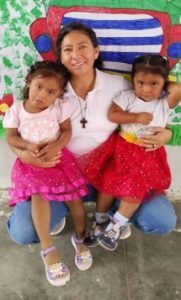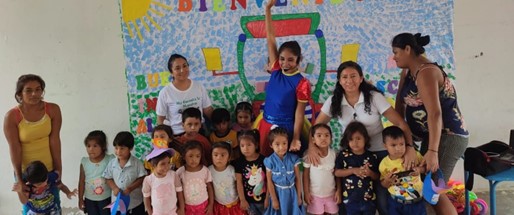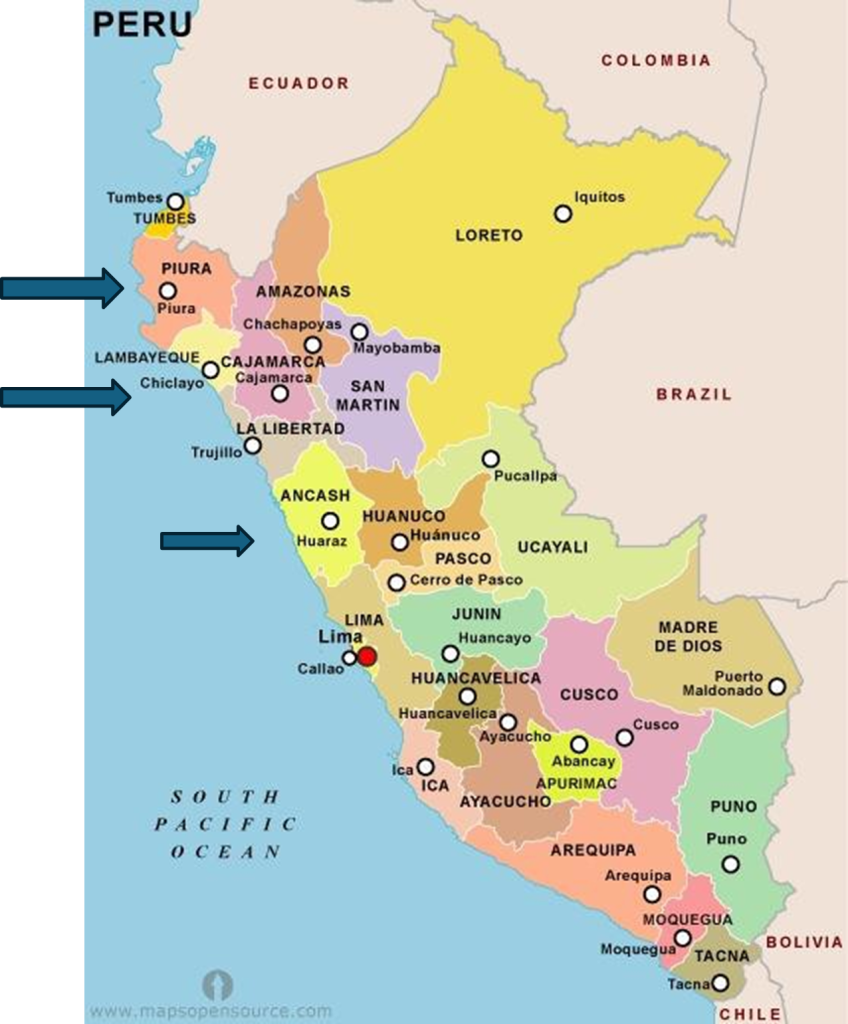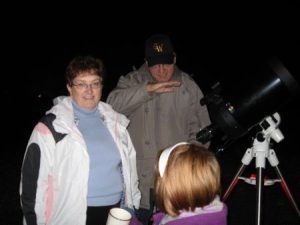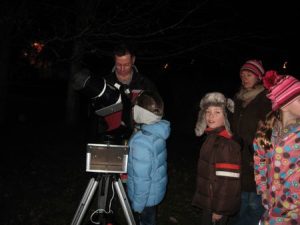November 1
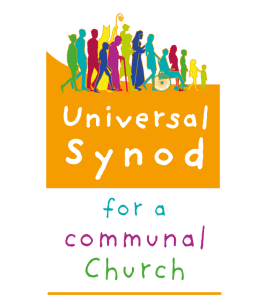 The following articles give information about the final report of the Synod:
The following articles give information about the final report of the Synod:
The Synod on Synodality’s final document: What you need to know
October 25
Elise Ann Allen, senior correspondent of Crux magazine, wrote this article on October 22, 2024: on women in the Church
October 18
An interesting article published in National Catholic Reporter
October 11
This link will give you access to a number of articles on the Synod from the Synodal Times
October 4
Two interesting items related to the Synod … One is a reflection given by Father Tomothy Radcliffe at the retreat preceding the Synod. The second is an article by Christopher White on the meeting of women ministry leaders from around the world with Pope Francis on September. The latter gives a good sense of the concern of women around the role of women in a synodal church
September 27
On Tuesday October 1 at 1:30 pm NL time, Pope Francis will preside over a penitential liturgy at St. Peter’s Basilica.
This link provides some information on this vigil.
September 20
As preparations continue for the second session of the Synod on Synodality which is fast approaching, the attached article may be informative
September 13
In these final weeks before the opening of the second session of the Synod on Synodality, it may be helpful to review the guidelines for preparation for this session as outlined by the Synod Council in December 2023. This document can be accessed here
September 6
This article by John Warhurst may be of interest, as it speaks of mixed opinions on the Synod. It comes from a renewal group in Australia, Catholics for Renewal.
August 30
The Latin American Bishops’ Council (CELAM) met in early August to discuss possibilities for helping the Church to incorporate synodality into its culture, practice and theology after this Synod on Synodality ends. Read more here
August 23
Monique Tarabeh- Our Lady of Charity of the Good Shepherd on August 19, 2024 writes:
“Reflecting on women’s roles through the lens of the synodal journey, Pope Francis’ decision to address his letters to the people of God as brothers and sisters marks a significant move towards greater inclusion. By avoiding titles and using inclusive language, he emphasized unity and interconnectedness within the church, resonating deeply with the spirit of the synod. His consistent highlighting of the indispensable role of religious women underscores the importance of embracing the theology of women, acknowledging the unique contributions women make to both the church and society, embodying compassion, love and teaching through their feminine essence.”
Read the complete article
August 16
Many of us have listened to and/or watched Father Timothy Radcliffe’s reflections during the October 2023 session of the Synod. He will be doing the retreat for the final session in October 2024 as well.
This article by Christopher White gives us a deeper sense of him and his thinking
August 9
Sister Patricia Murray IBVM has written a wonderful article tracing the journey of women’s religious communities from Vatican 11 to the Synod on Synodality. To access the article, click here
August 2
This article by Father Thomas Reese, SJ focuses on the working document for this October’s session of the Synod.
July 26
An article by Sean Winters on the working document for the October session of the Synod can be found here
July 19
This link leads to an item from the Union of Superiors General (UISG) that gives an idea of the contents of the document which will be the basis of the October 2024 session of the Synod on Synodality
July 12
On July 9 the guiding document (Instrumentum Laboris) for the October 2024 session of the Synod on Synodality was presented at a Vatican press conference. Hannah Brockhaus, Rome correspondent for Catholic News Agency wrote an article on July 3 that you may find interesting. To access the article click here
July 5
This link will take you to a press release from the Vatican dated June 14, 2024. It signals the completion of the work of a group of theologians commissioned by Pope Francis to work on preparing a document for the October 2024 session of the Synod on Synodality. This new document is titled A Church Alive and on the Move.”
June 28
Speaking at a June 13, 2024 meeting for moderators of international associations of the faithful, ecclesial movements and new communities, Pope Francis said that synodality is a process that moves us to share in others’ suffering. He also stressed the importance of spiritual conversion in the synodal process. Click here to read more regarding this talk.
June 21
Work is underway for the October 2024 session of the Synod on Synodality. Theologians from around the world are in Rome, working on the document Towards October 2024 which will be used to further the work of the Synod. This link will give you more information.
June 15
This article gives an idea of what is happening regarding the Synod in the US Church. You may find it interesting.
June 7
Father Thomas Helik, a Czech theologian and philosopher, spoke at the gathering of parish priests in Rome in early May about clericalism as a huge obstacle to synodality. A report on that event can be found here
May 31
This link brings you to an interview with Cardinal Michael Czerny relating his experience of the Synod on Synodality. Cardinal Czernywas born in Czechoslovakia but was raised in Montreal. He joined the Jesuits in 1964 and taught a year at Gonzaga High School in St. John’s. He has a long history of working for Social Justice. In December 2016 Pope Francis appointed him to the Migrants and Refugee Section of the Dicastery for Providing Integral Human Development. He was a voting member of the Synod.
May 24
Calls for fuller participation of women in the leadership of the Catholic Church have increased since last October’s session of the Synod. Groups like Future Church, Women’s Ordination Conference, Discerning Deacons, and Catholic Church Reform International continue to advocate for women’s leadership in the church. To learn further about this ongoing advocacy work, you can check Heidi Schlumpf’s article from the National Catholic Reporter of May 3, 2024
May 17
An event “Women and Synodality: Where Do we Go From Here?” took place at the Jesuit School of Santa Clara University in Berkeley on May 3- 4. Read about this event here
May 10
Speaking to members of the Italian Catholic Action lay association in St. Peter’s Square on April 25, Pope Francis urged lay Catholics to prepare for the “prophetic” stage of the Synod. Read more here
May 3
Anna Rowlands, a professor of Catholic social thought and practice from Durham University in Cambridge and a key Synod advisor, writes a theological reflection on Synodality. The attached article may give you a sense of her thinking.
April 26
Two articles related to the Synod that might be of interest to you:
April 19
Many religious congregations are struggling with interculturality and its impact on all aspects of their life.
In our own congregation our four Peruvian- born sisters all come from different cultures. In the past couple of years, they have been studying interculturality and its impact on their personal and community lives. As we look around us today, we can see how intercultural we are becoming as a church and as a society. This article shows that the key themes of the synod – communion, participation and mission – are very much tied to a deeper understanding and experience of interculturality
April 12
Father Thomas Reese, SJ, former editor of America magazine, wrote an article in late March on Pope Francis’ insistence that the main focus of this Synod is synodality, rather than specific controversial issues.
Access the article here
April 5
From April 28 to May 2, 2024 parish priests, selected by Bishops’ Conferences and Oriental Catholic Churches from around the world, will meet in Rome.
The intent of the meeting is to listen to parish priests, to underline the value of their experience in their local churches and to provide an opportunity for them to experience synodality at a universal level. Participants in this international meeting were chosen from a variety of pastoral contexts, largely because of significant parish involvement in the perspective of a synodal Church.
March 22
Pope Francis has announced that the October 2024 assembly of the Synod will focus on “How to be a Synodal Church in mission.”
The pope has also set up ten study groups to examine ten topics that were prominent during the October 2023 session of the Synod. The work of these groups is not expected to be completed until mid- 2025, but there will be a report given at the October 2024 session on their progress to date. This article will give you a sense of the areas being studied by these groups.
El papa Francisco ha anunciado que la asamblea del Sínodo de octubre de 2024 se centrará en “Cómo ser una Iglesia sinodal en misión.”
El Papa también ha creado diez grupos de estudio para examinar diez temas que ocuparon un lugar destacado durante la sesión del Sínodo de octubre de 2023. Se espera que el trabajo de estos grupos no concluya hasta mediados de 2025, pero en la sesión de octubre de 2024 se presentará un informe sobre los progresos realizados hasta la fecha.
March 15
The synthesis report from the October 2023 session of the Synod stated that “a profound conversion is needed to meet the desire to promote a Church in which men and women dialogue together … without subordination, exclusion and competition.”
In an article in Global Sisters Report of February 26, 2024, five panelists speak of the need for this spiritual conversion.
Read the article here
March 8
On February 17 2024 the Vatican announced that Pope Francis has launched synodal study groups to analyzekey issues in preparation for the October 2024 session of the Synod.
The synthesis report from the October 2023 session listed 75 different matters which were not able to be addressed at that time. Among these were priestly celibacy and women’s access to the diaconate. The General Secretariat of the Synod will coordinate the work of these study groups and experts from around the world will be involved.
Six new consultors to the General Secretariat have also been appointed, three of whom are female professors:
- Dr. Tricia Bruce, a sociology professor at Maryville College in Tennessee, USA
- Dr. Maria Clare Lucchetti Bingemer, a theology professor at the Pontifical Catholic University in Rio de Janeiro
- Dr. Birgit Weiler, a Medical Missionary Sister and theology professor at the Pontifical Catholic University of Peru
El 17 de febrero de 2024, el Vaticano anunció que el Papa Francisco ha puesto en marcha grupos de estudio sinodales para analizar cuestiones clave en preparación de la sesión del Sínodo de octubre de 2024.
El informe de síntesis de la sesión de octubre de 2023 enumeraba 75 asuntos diferentes que no pudieron abordarse entonces. Entre ellos figuraban el celibato sacerdotal y el acceso de las mujeres al diaconado. La Secretaría General del Sínodo coordinará los trabajos de estos grupos de estudio y en ellos participarán expertos de todo el mundo.
También se han nombrado seis nuevos consultores de la Secretaría General, tres de los cuales son profesoras:
Dra. Tricia Bruce, profesora de sociología en el Maryville College de Tennessee, EE.UU.
Dra. Maria Clare Lucchetti Bingemer, profesora de teología en la Pontificia Universidad Católica de Río de Janeiro
Dra. Birgit Weiler, Hermana Médico Misionera y profesora de teología en la Pontificia Universidad Católica de Perú
March 1
This link will bring you to an article from inside the Vatican’s Synod office, featuring Sister Nathalie Becquart, undersecretary of the Synod, published in February in Global Sisters Report.
February 23
Australasian Catholic Coalition for Church Reform (ACCCR), established in 2012, is a network of nineteen diverse groups in Australia and New Zealand, united under the call for renewal in the Church. Its stated role is to foster collaboration and support among member groups and to disseminate messages of hope and opportunity. These groups have been meeting over many issues in the Church, and since Pope Francis’ call of the Synod, they have made this a particular focus for their work.
The Introduction to ACCCR’s submission to the Synod in August of 2022 states: The coalition is guided by Vatican 11 and the leadership of Pope Francis, with a strong commitment to co-responsibility for the Church’s mission among all Catholics.
February 16
The following is a segment of a lengthy article by James Hanvery, SJ, exploring Pope Francis’ theology:
It is clear that so much of the papacy of Francis has been about opening up spaces of dialogue with the world and with other religions. Indeed, part of the whole process of synodality has been opening up spaces within the Church as well. Dialogue is not only the necessary prerequisite for understanding, but it is also integral to reconciliation. It is notable, that not only has Pope Francis carried on the facilitation of dialogue between religions and between nations, especially where there is tension and conflict but he has expanded and encouraged dialogue within the Church.
El siguiente es un segmento de un extenso artículo de James Hanvery, SJ, que explora la teología del Papa Francisco:
Está claro que gran parte del papado de Francisco ha consistido en abrir espacios de diálogo con el mundo y con otras religiones. De hecho, parte de todo el proceso sinodal ha consistido en abrir espacios también dentro de la Iglesia. El diálogo no sólo es el requisito previo necesario para el entendimiento, sino que también forma parte integrante de la reconciliación. Es notable que el Papa Francisco no sólo haya facilitado el diálogo entre religiones y entre naciones, especialmente allí donde hay tensiones y conflictos, sino que haya ampliado y fomentado el diálogo dentro de la Iglesia.
February 9
From April 28 to May 2 there will be a listening session for parish priests in Rome. The 300 priests who will attend will be chosen by their local Bishop’s conferences. This is another step in preparation for the October 2024 session of the Synod. This item from NCR gives more information:
February 2
The January 26 issue of the Synodal Times had the following item – an interview with Sister Mary T. Barron, President of UISG. The interview focused on the joint meeting organized in Rome by the Executive Councils of UISG and USG in late November 2023. Read the interview here
January 26
Read this article by Kimberley Hetherington in Global Sisters Report , November 9, 2023, where religious share how synodality shapes their decisions, their way of life and how their experience can help the wider church.
January 19
Read this item dated December 13 on the Synod on Synodality is taken from The Synodal Times.
January 12
The following articles may be helpful for better understanding and fuller absorption of some of the insights from the October 2023 session of the Synod.
Religious share how synodality shapes their decisions, common life — and can help the wider church
Synod small-table discussions put all on equal footing, UISG members say
December 22, 2023
This press release, dated December 13 giving guidelines for preparing for the October 2024 session of the Synod on Synodality. The actual document can be read here
Este comunicado de prensa, fechado el 13 de diciembre, ofrece orientaciones para preparar la sesión de octubre de 2024 del Sínodo sobre la Sinodalidad. El documento propiamente dicho puede leerse aquí
December 15
The presence of 54 women at the Synod in October was not only historic; it also brought about a new energy for lifting up women and other excluded populations in our Church.
There were proposals in the Synod synthesis to advance women’s role and ministry in the Church, but the energy and hunger for women’s leadership, ministry and decision-making authority that was so evident in the preparatory documentation seems to have been muted. A new sign of hope came when Pope Francis met recently with his Council of Cardinals. For further information, click on the following links:
Last week a webinar – the first of two sessions – featuring the UISG delegates at the October session of the Synod sharing their synodal experiences was held.
December 8
Cardinal Robert McElroy address to the Religious Formation Conference in Chicago in November on the Synod can be accessed here.
December 1
The following articles from The National Catholic Reporter may be helpful in our further reflection on the October 2023 session of the Synod on Synodality and its synthesis document:
Thomas Reese, a Jesuit and former editor of America magazine, 15 hidden gems in the synod on synodality report
Phyllis Zagano, a Catholic lay theologian,‘Excuse me, Your Eminence, she has not finished speaking’
November 24
View the multimedia version of the Letter from the October session of the Synod to the People of God
November 17
While Phase One of the Synod is over, we need to keep in mind Pope Francis’ call to the whole Church to continue on the synodal journey through prayer, listening to the Spirit and one another and consciously walking together as God’s family, missionary disciples on a shared journey. The Synod’s letter to the Church states that “the months leading up to the second session in October 2024 will allow everyone to concretely participate in the dynamism of missionary community indicated by the word Synod.” The following statement from the letter puts forward the hope and belief of the Synod: “It is precisely the path of synodality which God expects of the Church of the third millennium.”
Video “Tribute to the Women of the Synod”: https://www.youtube.com/watch?v=cAfoJENIM-8
To get another look at sisters’ experience of the Synod click on the following:
https://www.globalsistersreport.org/news/how-has-synodal-process-affected-catholic-sisters
November 10
The following links may be of interest as we look back on the October session of the Synod on Synodality and come to a clearer understanding of the synodal process:
https://www.globalsistersreport.org/news/process-key-sisters-respond-2023-synods-synthesis-document
“Tribute to the Women of the Synod” video with quotes and music: https://www.youtube.com/watch?v=cAfoJENIM-8


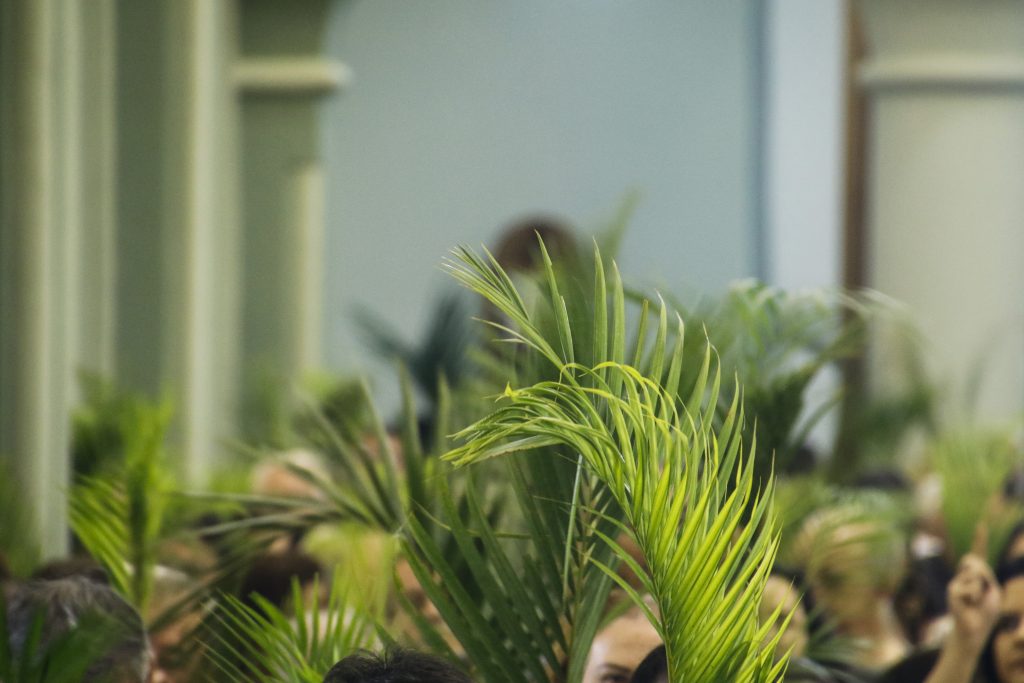 Given the right kind of conditions, it is possible to enter Holy Week from the inside rather than the outside – not as a series of commemorative events surrounding the final days of Jesus’ earthly life, but as a way of actually accompanying Jesus on His timeless passage through death to the very source of life and back into this world, with the unshakable certainty that “nothing can separate us from the love of God.”
Given the right kind of conditions, it is possible to enter Holy Week from the inside rather than the outside – not as a series of commemorative events surrounding the final days of Jesus’ earthly life, but as a way of actually accompanying Jesus on His timeless passage through death to the very source of life and back into this world, with the unshakable certainty that “nothing can separate us from the love of God.” The documentary is the work of film maker, Kevin Moynihan with the financial help of a number of religious orders in Canada. Our congregation has contributed to his work over the years.
The documentary is the work of film maker, Kevin Moynihan with the financial help of a number of religious orders in Canada. Our congregation has contributed to his work over the years.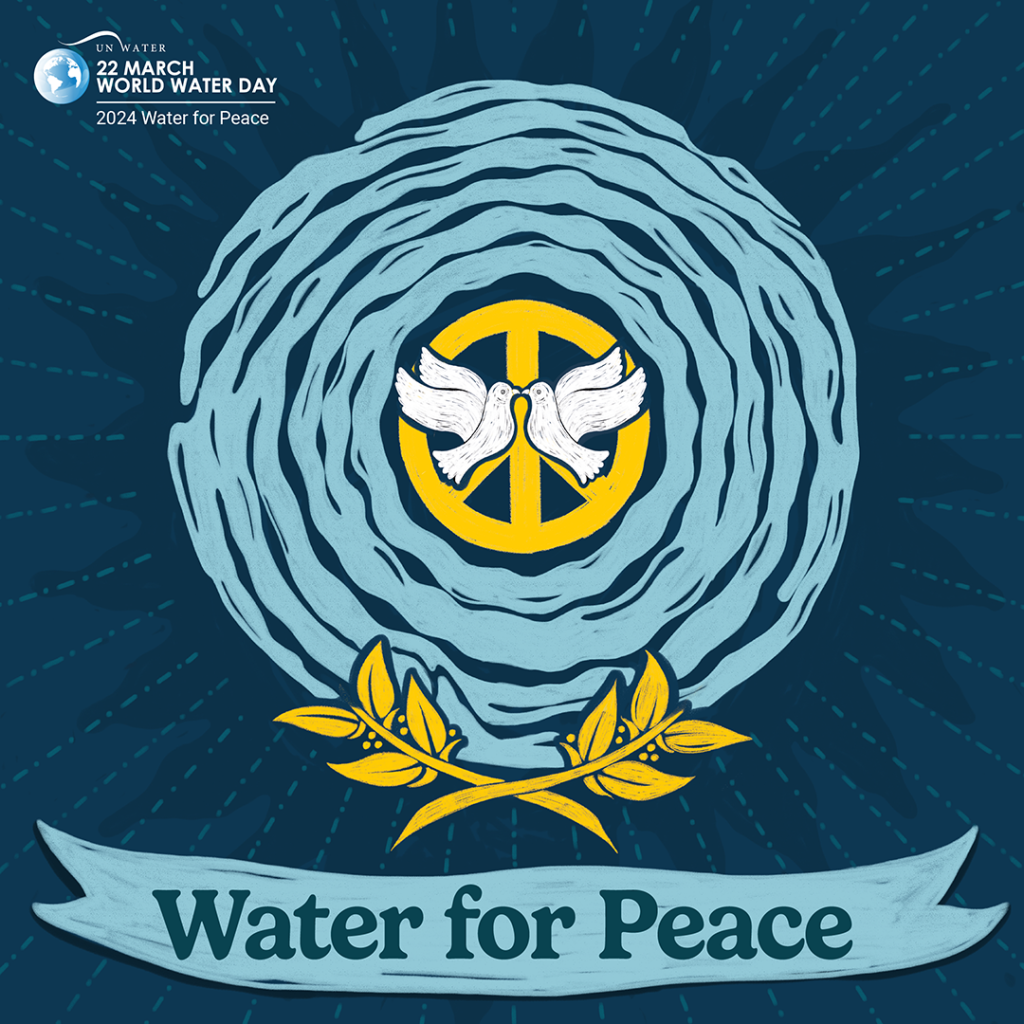 More than three billion people worldwide depend on water that crosses national boundaries, but only 24 countries have cooperation agreements for their shared water. With the critical impacts of climate change and the growth of populations, there is an urgent need, within and between countries, to unite around protecting and conserving this most precious resource. Public health and prosperity, food and energy systems, economic productivity and environmental integrity all depend on a well-functioning and equitably managed water cycle.
More than three billion people worldwide depend on water that crosses national boundaries, but only 24 countries have cooperation agreements for their shared water. With the critical impacts of climate change and the growth of populations, there is an urgent need, within and between countries, to unite around protecting and conserving this most precious resource. Public health and prosperity, food and energy systems, economic productivity and environmental integrity all depend on a well-functioning and equitably managed water cycle.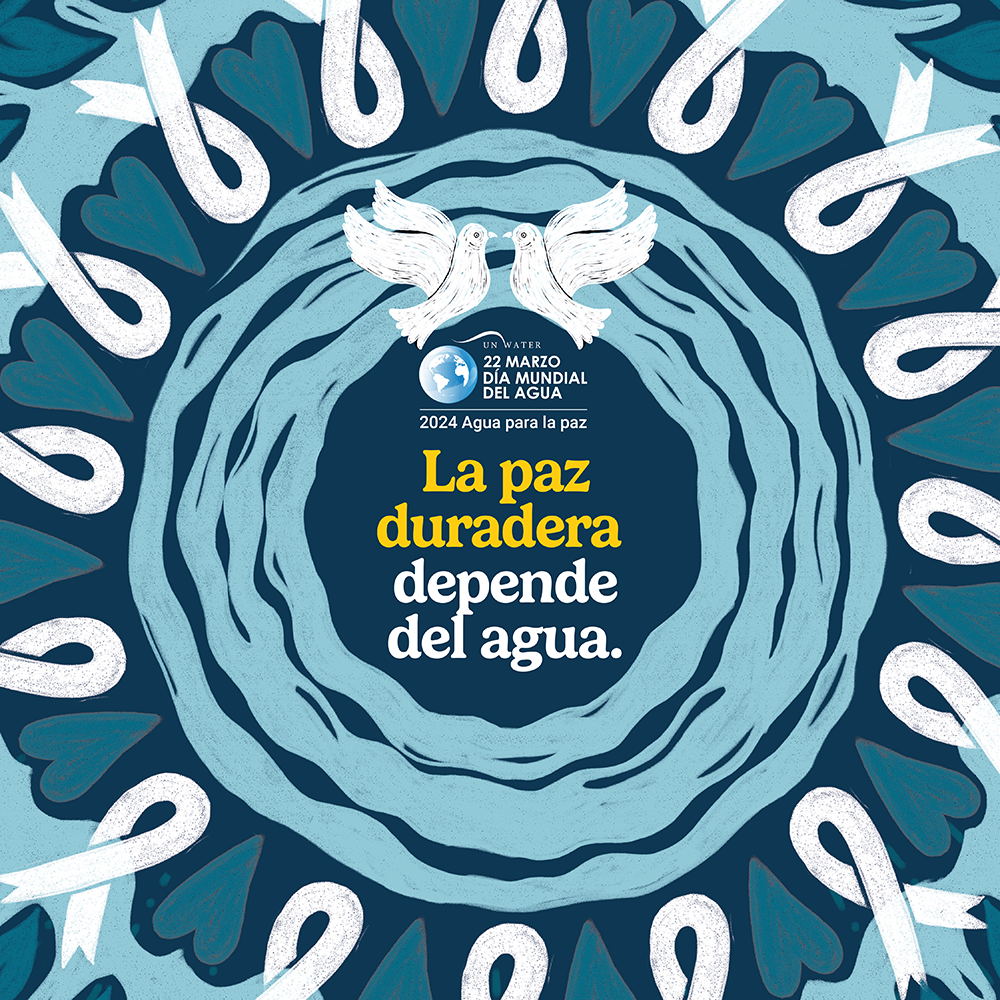 Más de tres mil millones de personas en todo el mundo dependen del agua que cruza las fronteras nacionales, pero sólo 24 países tienen acuerdos de cooperación para el agua que comparten. Con los impactos críticos del cambio climático y el crecimiento de la población, hay una necesidad urgente, dentro y entre los países, de unirse en torno a la protección y conservación de este recurso tan preciado. La salud pública y la prosperidad, los sistemas alimentarios y energéticos, la productividad económica y la integridad medioambiental dependen del buen funcionamiento y la gestión equitativa del ciclo del agua.
Más de tres mil millones de personas en todo el mundo dependen del agua que cruza las fronteras nacionales, pero sólo 24 países tienen acuerdos de cooperación para el agua que comparten. Con los impactos críticos del cambio climático y el crecimiento de la población, hay una necesidad urgente, dentro y entre los países, de unirse en torno a la protección y conservación de este recurso tan preciado. La salud pública y la prosperidad, los sistemas alimentarios y energéticos, la productividad económica y la integridad medioambiental dependen del buen funcionamiento y la gestión equitativa del ciclo del agua. The following articles give information about the final report of the Synod:
The following articles give information about the final report of the Synod: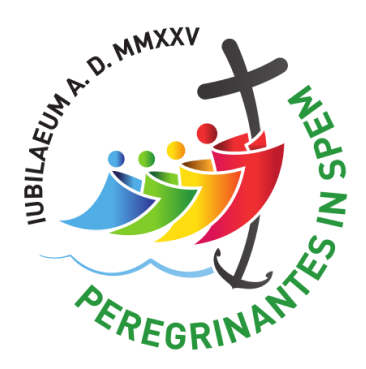 In his Sunday Angelus address of January 21, 2024, the Pope designated 2024 as a special year of prayer in preparation for the upcoming Jubilee.
In his Sunday Angelus address of January 21, 2024, the Pope designated 2024 as a special year of prayer in preparation for the upcoming Jubilee.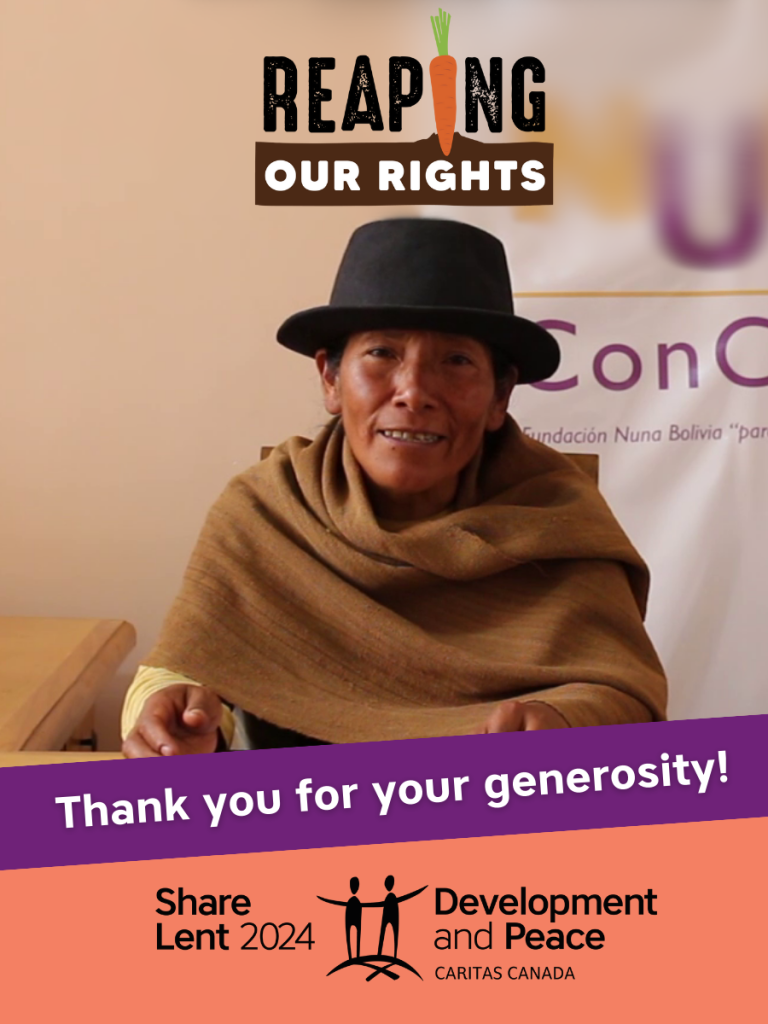 It is, in effect, our faith communities’ way of being in solidarity with those who are actively working for peace and justice around our world.
It is, in effect, our faith communities’ way of being in solidarity with those who are actively working for peace and justice around our world.
